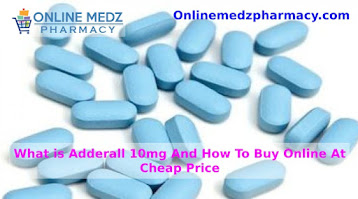Adderall vs Ritalin: What’s the Difference?
Adderall vs. Ritalin
Amphetamine/dextroamphetamine (Adderall) and methylphenidate (Ritalin) are two of the most common drugs for treating symptoms of ADHD. Both of these are stimulant medication, that means they affect the brain chemicals and help a person focus on a given task.
The main difference between Adderall and Ritalin are their ingredients. While Adderall contains a combination of dextroamphetamine and amphetamine, Ritalin only has methylphenidate hydrochloride.
Adderall takes longer to show its effects in the body as compared to Ritalin, which can reach its peak levels in about 1 hour. Adderall, on the other hand, takes about 3 hours to show its effects properly. Adderall usually stays in the system for more extended periods in comparison to Ritalin. It takes the body around 10 to 13 hours to get rid of the effects of Adderall, and Ritalin’s effects can disappear in 3 to 4 hours. A long-acting variant of Ritalin is available, but it also only lasts for about 8 hours.
How do they work?
Both Ritalin and Adderall are CNS (central nervous system) stimulants. These medicines work by increasing the availability of the neurotransmitters dopamine and norepinephrine in the brain. The increase in the neurotransmitters speeds up brain activity.
Ritalin works more quickly than Adderal, but Adderall stays active in the system for a longer duration than Ritalin. Working for a short period does not make Ritalin a poor choice for treating the symptoms of ADHD. Some people even prefer Ritalin because its side effects only last for a shorter period relative to Adderall.
Side effects
As both of these drugs are CNS stimulants, they can have similar side effects. The severity of the side effects might vary from person to person. Consult with a doctor before taking any of these medications to avoid any significant negative impact.
Common side effects of Ritalin and Adderall:
Dry moth
Dizziness
Trouble sleeping
Increased heart rate
Loss of appetite
Anxiety
Irritability
Headache
Restlessness
Skin rash
Tics
Mood swing
Upset stomach
Hives
Weight loss
Increased blood pressure
Constipation
Diarrhea
Insomnia
Belly pain
Nervousness
Nausea
Severe side effects of Adderall and Ritalin:
Slowed growth in children
Heart rhythm problems
Psychosis
Addiction
Raynaud’s syndrome
Blurred vision
Seizure
Circulation problems in fingers and toes
If you experience any side effects which disrupt your normal functioning, you should get in touch with a doctor. If you encounter any severe side effects, then it is best to contact a medical professional or emergency services to get proper medical attention.
Warnings
Ritalin and Adderall are central nervous system stimulants and have the potential to increase the risk of cardiovascular incidences, such as stroke and heart attack. People who have an existing heart condition like coronary artery disease or heart arrhythmia must use caution while taking any of these medications.
People with high blood pressure must also be aware of the side effects of Ritalin and Adderall, which includes increased blood pressure. It is also best to consult the doctor if you are taking any blood pressure medication before you taking Adderall or Ritalin.
Both Ritalin and Adderall are Schedule II controlled substances as per the DEA. Taking these drugs without a proper prescription or in controlled amounts can lead to substance abuse and might build a dependence. If you stop taking these medications, you might experience withdrawal symptoms. Only use these drugs as prescribed by the doctor, making any alteration in the dosage can lead to some severe side effects.
Extended use Adderall and Ritalin can lead to suppression of growth in children. It is necessary to measure the weight and height of the children throughout the treatment process.
These medications can also cause health problems in the unborn child, so it is best to avoid them during pregnancy.
Drug interactions
Let the doctor know about all the medications you are taking before starting the treatment with either Adderall or Ritalin. These drugs can interact with prescription and non-prescription medicine, herbal, and vitamin supplements.
What drugs interact with Ritalin?
Some of the drugs that Ritalin interacts with include:
Drugs used in the treatment of hypertension
MAO inhibitors
Vitamins and herbal supplements
Anticoagulants and anticonvulsants like phenobarbital, phenytoin, and primidone
Tricyclic drugs like imipramine, desipramine, and clomipramine
What drugs interact with Adderall?
The medicines Adderall interacts with include:
Stomach acid medicines
Seizure medicines
Anti depression medicine including MAOIs
Blood thinner medicines
Blood pressure medicines
Allergy or cold medicines that contain decongestants
These medicines can also interact with each other and cause serious side effects. Sometimes, the doctor might adjust the dose of other medications you will need to take along with Adderall or Ritalin to minimize the risk of getting side effects. It is crucial to follow the doctor’s advice to determine whether you should take Adderall or Ritalin with other medications.
It is necessary to talk to a healthcare professional before taking any new medication while already taking Ritalin or Adderall.





If you’ve had a problem with drug or alcohol abuse in the past, talk to your doctor about whether you should take stimulant medications. Addiction Rehab Centers
ReplyDelete